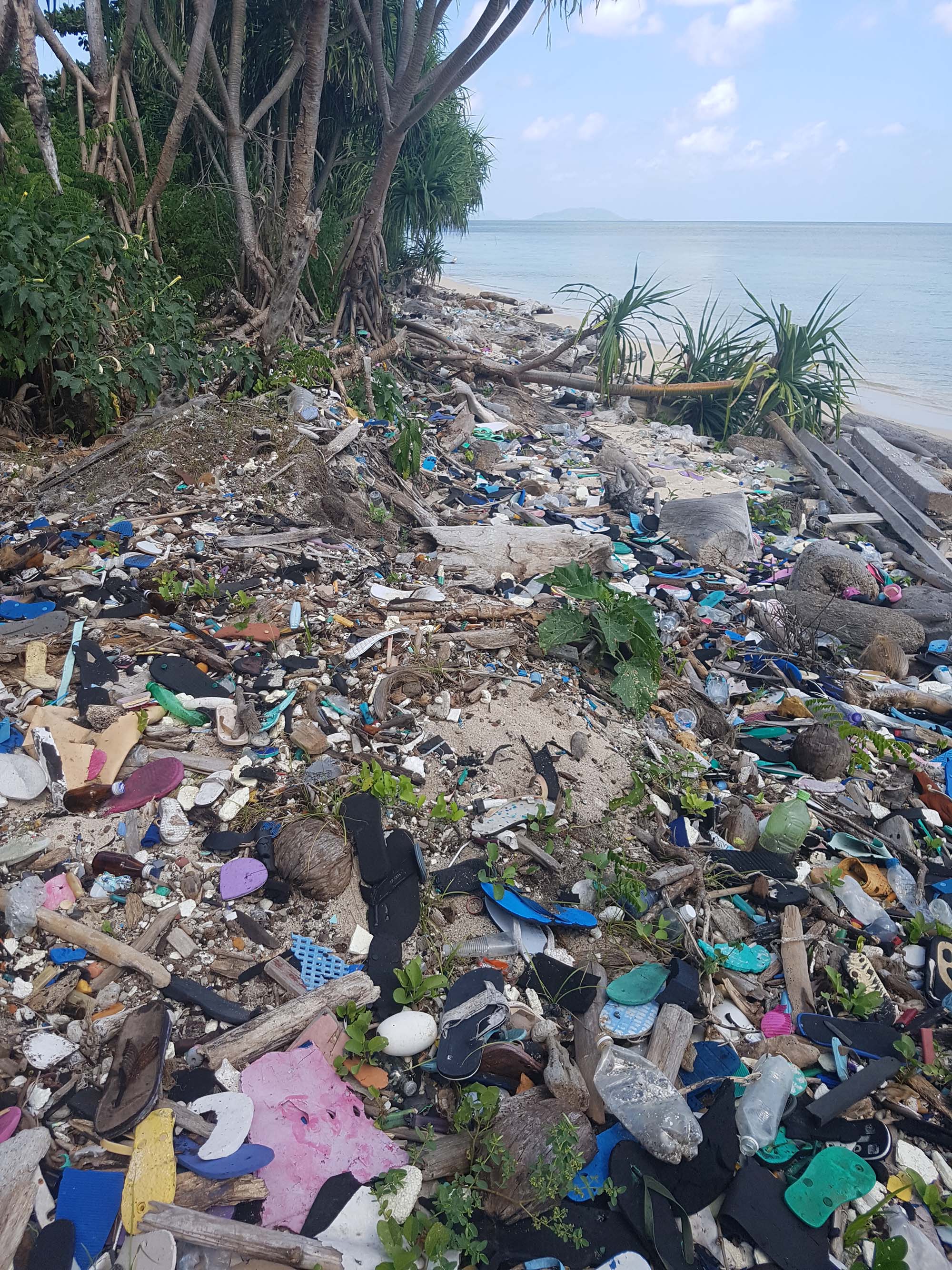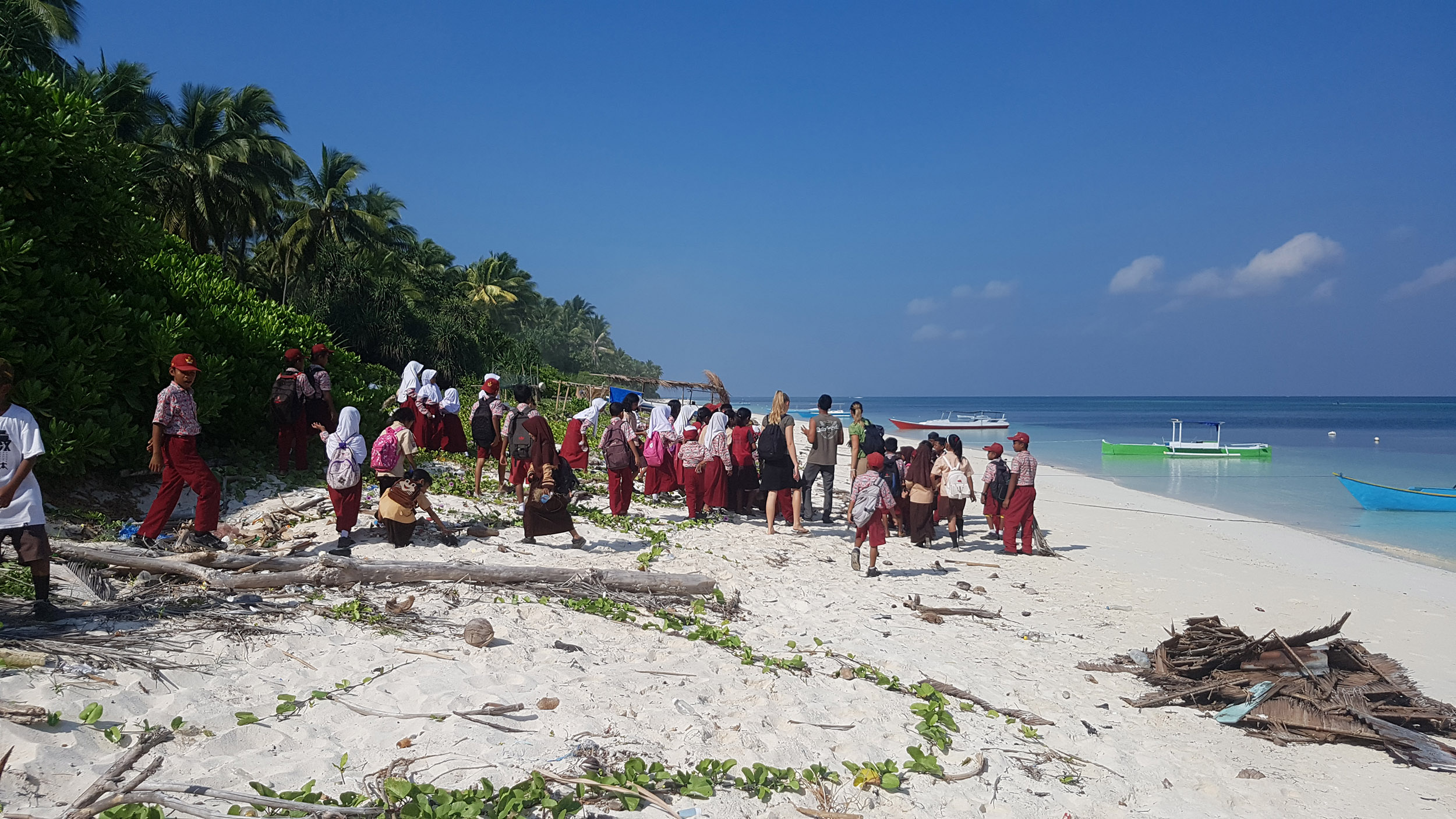In 1990, avid sailor Ian Kiernan AO launched the very first Clean Up Australia Day event with Kim McKay AO. Ian was shocked by the pollution he continually encountered on the oceans, and he wanted to do something about it. He got together a group of friends and organised a community event to pick up rubbish.
Its popularity grew, and today more than 20 million Australians have given more than 38 million hours of their time to help clean up their local environments, from parks to waterways, roadsides to bushland, and school grounds to shopping malls*.
The Clean Up Australia Day story is just one of many examples of community stewardship around Australia, says UQ Emeritus Professor, Helen Ross, who studies the social aspects of sustainable development, as well as people-environment relationships.
What is community stewardship?
“At its core, community stewardship is about practical, public participation,” Professor Ross says.
“Usually, this means groups of people with a similar goal and a purpose coming together to work collaboratively over time. The intent is that it’s very bottom-up. People do practical things, mixed with a little bit of advocacy. And they take ownership of their priorities.
“One of the biggest challenges facing the model, however, is the ageing demographic of volunteers. It’s a goal of many stewardship groups to encourage younger generations to become involved.
“Clean Up Australia Day is a great initiative, as it’s not too demanding and it offers a lower commitment pathway into these kinds of activities,” she says.
Professor Ross edited and co-authored a 2019 paper on environmental stewardship in Moreton Bay. The paper noted that more than 500 community groups volunteer their time to help manage and protect local waterways in South-East Queensland. It cited international recognition of Moreton Bay’s successful approach and concluded that the diversity and range of grassroots actions taking place have significantly contributed to environmental management in the area.
It’s a nice evidence base to demonstrate the impact individuals and smaller groups can have when they want to be part of caring for their local land and waterscape.
Chair of the Clean Up Australia organisation, Pip Kiernan, wholeheartedly supports this sentiment. She says the Clean Up Australia Day organisation hear constantly from Australians who just want to do something that makes a positive difference for their environment.
“One of the things that is so special about Clean Up Australia Day is that Australians of all ages participate, from pre-schools to nursing homes, from the tip of Cape York, to the rainforests of Tassie, from Airlie Beach to Zillmere.
“Don’t underestimate the power of the individual. From picking up rubbish on a beach, to making informed purchasing choices, recycling properly and reducing our food waste – there are myriad ways we can all help reduce the impact of waste on our planet,” Pip says.
Why is community involvement important?

Associate Professor Ian Tibbetts, at the UQ School of Biological Sciences, has promoted and participated in many Clean Up Australia Day events at the University in previous years.
“Clean Up Australia Day is a great opportunity to fly the flag and engage with students studying environmental science or sustainability at a practical level,” he says.
“And we collect a lot of stuff. You’d be astonished how much. Waste washes up on our riverbank from around campus, across the surrounding suburbs and much further afield. The tide lifts it up over the mangrove roots and they just act as a trap, holding the rubbish in place.”
“So, cleaning up helps people to think about where their rubbish is going,” Professor Tibbetts says.
Amy Bartkowski, Volunteer Executive for the student-run UQ Geography and Environmental Management (GEMS) Society, agrees. Both UQ GEMS and the UQ Marine Society provide student support to help coordinate the UQ Clean Up Australia Day effort.
Amy was involved in 2023 for the second year running. She is also completing her Honours year of a Bachelor of Environmental Management and says that being part of the clean up has really encouraged her to reduce waste in her own daily life.
“Seeing the build-up of single-use plastics in such a small area is a real motivator to opt for reusable alternatives. It’s an annual reminder of Australia’s waste crisis,” she says.
Professor Tibbetts says the hands-on experience and social nature of the event also mean that students can meet and be inspired by their peers and teachers across many fields.
“This exposure can prompt them to make changes that impact their entire careers. A few years ago, we had a volunteer join us who was studying in a different discipline entirely but had heard about the event and wanted to come and help. After being part of the clean up that day, they switched their degree and now they're doing a PhD in marine science!”
Being part of the global solution

Professor Ross says raising awareness is just as important an outcome from these kinds of initiatives as the rubbish collection itself.
“It’s also vital that we are thinking about and understanding the whole waste supply and logistics chain,” she says.
She refers to research she undertook in remote eastern Indonesia with a former UQ Business School colleague, Dr Anya Phelan.
“We interviewed many individuals, households, and tourism and fishing operators about the huge amounts of rubbish – and, in particular, plastic waste – lying around on beaches and in the ocean.
“We realised that although their level of understanding about plastic waste impacts was low, so, too, was their ability to do anything about it. There were no regular waste disposal methods (no council rubbish collection services), and very few options to make different choices in terms of purchasing.
“So, it’s a challenge on both the supply and the disposal side. Manufacturers need to play their part in the solution, seeking out alternatives to low-cost plastic packaging, as well as taking responsibility for the outcomes of their products.
“Further, not all rubbish is generated by the local population. Tourism plays a role in producing waste, as do shipping vessels, disposing of their rubbish at sea. That isn’t supposed to happen, but it definitely does, then the rubbish washes up onshore in these locations, which don’t have any capacity to dispose of wastes.”
Closer to home, Professor Ross emphasises that action needs to be about preventing and reducing waste, as much as picking it up. It’s a focus that Clean Up Australia has similarly evolved towards over the years, with the organisation now offering a range of information, projects and challenges that educate Australians on how to live more sustainably every day of the year and change their own individual waste patterns.
How can you get involved?
Any UQ Clean Up Australia Day events are promoted each year on our website.
Staff and students are welcome to attend. People usually just need to register in advance to ensure adequate gloves, bags and so on are provided.
Big groups and solo collecters are welcome!
View event details and register to participate here.
*Clean Up Australia Day, Our story





